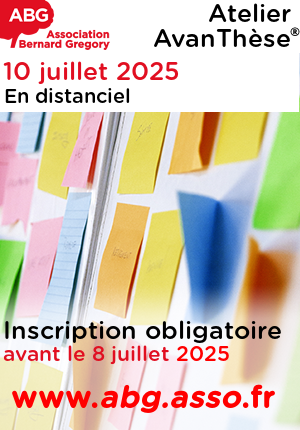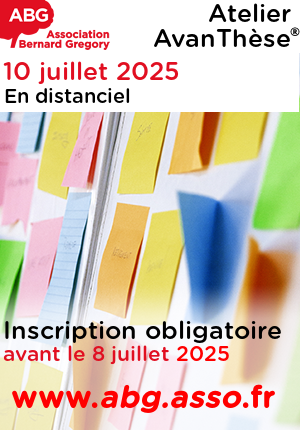3D printed and biobased solar crystallizer for salt/water separation of high concentrated brine
| ABG-132488 | Sujet de Thèse | |
| 12/06/2025 | Contrat doctoral |
- Chimie
Description du sujet
Le ou la candidat(e) retenu(e) rejoindra l’équipe « Matériaux biosourcés » de l’Institut Jean Lamour à Épinal en tant que doctorant(e). Il ou elle travaillera sous la supervision de Vincent Nicolas (Maître de conférences HDR – Université de Lorraine) et Jimena Castro Gutiérrez (Ingénieure de recherche CNRS), avec Kerri Hickenbottom (Associate Professor – University of Arizona) comme co-responsable du projet 3D-SEPARATION, financé conjointement par le CNRS et l’Université d’Arizona (UofA).
L’objectif principal de ce projet est de développer un cristalliseur solaire biosourcé imprimé en 3D, destiné à la séparation sel/eau de saumures hautement concentrées, dans le cadre d’un dessalement passif de l’eau et de la récupération des minéraux.
La thèse proposée vise à développer une cellule d’évaporation reposant sur une matrice poreuse en carbone obtenue par impression 3D (stéréolithographie) à partir de résines biosourcées. Cette matrice aura pour rôle de renforcer les performances d’évaporation de l’eau et la cristallisation du sel en augmentant la surface d’échange entre l’eau à purifier et l’air ambiant et en captant efficacement le rayonnement solaire grâce à la forte capacitée d’absorption du carbone.
Dans le cadre du projet 3D-SEPARATION, les objectifs spécifiques sont :
- Concevoir un évaporateur solaire performant pour la séparation des sels,
- Développer un nouveau cristalliser solaire,
- Avancer vers la mise en œuvre de systèmes à zéro rejet liquide (ZLD).
The selected candidate will join the “Bio-based Materials” team of the Jean Lamour Institute in Épinal as a PhD student. He or she will work under the supervision of Vincent Nicolas (Associate Professor with HDR – University of Lorraine) and Jimena Castro Gutierrez (Research Engineer – CNRS), with Kerri Hickenbottom (Associate Professor – University of Arizona) as co-lead of the 3D-SEPARATION project, jointly funded by CNRS and the University of Arizona (UofA).
The main objective of this project is to develop a 3D-printed, bio-based solar crystallizer for salt/water separation from highly concentrated brine, with the aim of achieving passive water desalination and mineral recovery.
The proposed PhD project aims to develop an evaporation cell based on a porous carbon matrix produced via 3D printing (stereolithography) of bio-based resins. This matrix will enhance water evaporation and salt crystallization by increasing the exchange surface between the water to be treated and the surrounding air and by capturing solar radiation efficiently thanks to carbon’s high solar absorption capacity.
As part of the 3D-SEPARATION project, the specific objectives are to:
- Design a high-performance solar evaporator for salt separation,
- Develop a new solar crystallizer,
- Move toward the implementation of zero liquid discharge (ZLD) systems.
Prise de fonction :
Nature du financement
Précisions sur le financement
Présentation établissement et labo d'accueil
L’Institut Jean Lamour est une UMR ayant pour tutelles le CNRS et l’Université de Lorraine. Ses activités ont lieu sur trois sites géographiques : Nancy (Campus ARTEM, où l’essentiel des équipes sont regroupées), Epinal (Campus Bois, où se situe l’équipe d’accueil), et Metz (Campus Bridoux). Il regroupe environ 550 personnes. Voir https://ijl.univ-lorraine.fr/, et en particulier https://ijl.univ-lorraine.fr/equipes/equipe-materiaux-bio-sources. Le travail concernant cette annonce se fera dans les laboratoires de l’IJL à Epinal.
The Institut Jean Lamour is a joint laboratory under the supervision of the CNRS and the University of Lorraine. Its activities take place on three geographical sites: Nancy (ARTEM Campus, where most of the teams are located), Epinal (Wood Campus, where the host team is located), and Metz (Bridoux Campus), with a staff of about 550 people. See https://ijl.univ-lorraine.fr/, and in particular https://ijl.univ-lorraine.fr/en/research-groups/bio-sourced-materials-group. The work concerning this announcement will be done in the IJL laboratories in Epinal.
Site web :
Intitulé du doctorat
Pays d'obtention du doctorat
Profil du candidat
Le candidat doit être titulaire d'un master 2 ou équivalent, avec une spécialisation en « matériaux », « chimie », « sciences de l'ingénieur », « énergie » ou « transferts en milieux poreux ». Une expérience dans l'étude des matériaux carbonés sera requise. Les autres critères essentiels sont la réactivité, l'autonomie au sein du laboratoire, et la capacité à travailler en équipe. Une excellente maîtrise de l’anglais est indispensable, des séjours au WEST CENTER à Tucson (Arizona) seront à prévoir durant la thèse. Une maîtrise de la langue française sera également grandement appréciée.
The candidate must hold a Master 2 or equivalent, with a specialization in "materials", “chemistry”, "engineering sciences", "energy" or "transfers in porous media". Experience in the study of carbonaceous materials will be required. The other essential criteria are responsiveness, autonomy within the laboratory, and the ability to work in a team. An excellent command of English is essential, stays at the WEST CENTER in Tucson (Arizona) will be expected during the thesis. A mastery of the French language will also be greatly appreciated.
Vous avez déjà un compte ?
Nouvel utilisateur ?
Vous souhaitez recevoir nos infolettres ?
Découvrez nos adhérents
 SUEZ
SUEZ  ANRT
ANRT  ONERA - The French Aerospace Lab
ONERA - The French Aerospace Lab  ASNR - Autorité de sûreté nucléaire et de radioprotection - Siège
ASNR - Autorité de sûreté nucléaire et de radioprotection - Siège  Ifremer
Ifremer  PhDOOC
PhDOOC  Tecknowmetrix
Tecknowmetrix  MabDesign
MabDesign  Laboratoire National de Métrologie et d'Essais - LNE
Laboratoire National de Métrologie et d'Essais - LNE  Groupe AFNOR - Association française de normalisation
Groupe AFNOR - Association française de normalisation  ADEME
ADEME  CESI
CESI  Institut Sup'biotech de Paris
Institut Sup'biotech de Paris  Aérocentre, Pôle d'excellence régional
Aérocentre, Pôle d'excellence régional  Généthon
Généthon  TotalEnergies
TotalEnergies  CASDEN
CASDEN  MabDesign
MabDesign  Nokia Bell Labs France
Nokia Bell Labs France







